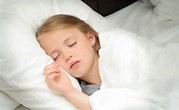Did you Know....
What Can I Do to Help My Child With The End-Of-School-Year Transition?
--Adapted from Henry, 2016; Family Education.
- Children are often anxious about a school year ending, even though they are excited about summer.
- Summer puts distance between the relationships that they have built with peers and teachers, and takes away the comfort of a predictable routine.
- All children (1) react to change, (2) crave structure/stability, (3) and have anxieties, but children who struggle with an elevated level of anxiety struggle much more with this change. (1 in 8 children have an anxiety disorder, which is an elevated level of anxiety that controls his/her overall functioning).
- Symptoms of a child struggling with end-of-year anxiety include: nervousness, worry, high levels of restlessness, irritability, over-reacting to situations, difficulty concentrating in school (i.e. “My mind is going blank!”), somatic complaints (i.e. stomach pains and headaches, difficulty falling asleep, and difficulty staying asleep. Children may even have panic attacks, or autonomic hyperactivity (i.e. shortness of breath, dizziness, rapid heart beat, dry mouth, nausea, and diarrhea).
What Can I Do to Help My Child With The End-Of-School-Year Transition?
- Discuss some of your summer plans with your child, and get his/her input on activities. Talk about child care plans. Talk about a typical day. Show when special events will happen on a calendar.
- Have a discussion regarding your child’s feelings about the end of the school year so that he can increase his awareness of what he is feeling, why he is feeling it, and how he is showing what he is feeling.
- Help to come up with ideas to getting some of the negative feelings to resolve, such as making a card for teachers, getting phone numbers of friends, and talking about exciting new experiences for the summer and next school year.
- Empower your child by validating his/her feelings instead of trying to talk your child out of them. Many adults think it’s best to distract kids from their feelings or try to change their child’s feelings with positive thoughts, but it often makes the negative feelings last longer and get stronger until they are validated. Listen to your child’s feelings without interrupting, and acknowledge them (i.e. “I know you are nervous about the end of the school year.”). Then, let your child know that you care about her feelings, and that you are looking forward to your summer plans with your child.
--Adapted from Henry, 2016; Family Education.

 RSS Feed
RSS Feed
